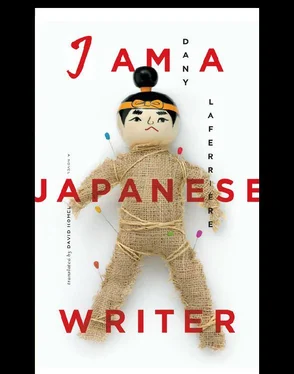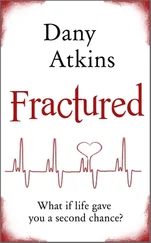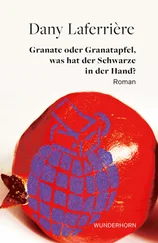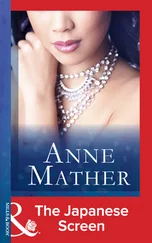Mr. Tanizaki was turning circles around my park bench. I listened to him half-heartedly, though I felt his passion for the issue. If I understood correctly, the whole thing started with a cultural program I was featured on, then the tv got involved, and pretty soon it hit the streets. Even the army got into the act: on the nightly news, in front of his whole family, an officer declared, “I am a Korean soldier.” A Japanese officer said that! Of course he was thrown into the brig, but then the student press went wild. In the end he was sent to the north, a kind of internal exile. But the high point of the whole business was this truck driver, rippling with muscles and covered in tattoos, who did a transvestite number late at night in a little club on the outskirts of town. Everyone rushed to see him. His hit song played on every radio station: “I Am a Japanese Geisha.” Everyone was singing it in the subway, even kids.
Mr. Tanizaki was out of breath by the time he finished his story.
“How’s it going for you?” I asked him.
“Couldn’t be better! They’ve been taking me seriously at the consulate since all this began. They even talked about me on tv. My father wrote to me, the first time in his life that he’s opened his heart to someone. He certainly never did that with my mother. He said he regretted never having told her he loved her. He told me about the war. He was a career soldier. The Army was his whole life. In the end, he sent me his love. And, most amazing of all, he didn’t say a single word about the homeland or the Emperor. I cried when I read his letter. A dozen sentences written down in pencil. . I’m going back to Japan. I’ll be able to go back to my old job at the college, teaching poetry.”
“That’s good news.”
“Remember back in the restaurant, you asked me right out, ‘And the poets?’ I didn’t answer. That’s what rekindled my desire to take up teaching again. Never forget poetry. . Oh, and a major publisher asked me to write the preface to your book. I’m going to take a few days, then get down to it. I wanted to tell you what an honor it was to spend time with you. Your book changed my life.”
“But I haven’t written a book.”
“You did better than that,” he said, his voice low and full of emotion.
It’s good to write a book, but sometimes it’s better not to write it. I was famous in Japan for a book I didn’t write. I was starting to get hungry. I decided to walk downtown and buy myself a hamburger with fries and a Coke, the only American contribution to world gastronomy. And if the fries were soggy and cold, the way I figured they’d be, I would console myself by thinking about how famous I was in Japan.
“Let me wish you good luck, Mr. Tanizaki.”
“You know me as Mr. Tanizaki, but that’s not my real name. Tanizaki is my favorite novelist. You can’t imagine how much enjoyment you have given me… And now, what are you going to do?”
“Nothing. Nothing at all.”
“You’re not going to spend the rest of your life sitting on this park bench?”
“Not a bad idea.”
Once he’d left, I sent a telegram to my publisher: “I am no longer a writer.” That’s not the title of a novel. Mind you, it wouldn’t be a bad one — in perfect harmony with my progress towards minimalism. Absolute zero, though, would be: “I am no longer.” I’ll keep those two titles for later on, when my belly is scraping my backbone. I won’t be able to use “I am no longer” until I’m at least ninety years old.
I went down St-Denis and turned right on Ste-Catherine, disappearing into the downtown crowds. It was one of those sunny autumn Montreal days. The air smelled good. The girls were still wearing their summer skirts. Right then, no one knew where I was. Or who I was either. But I was still famous in Japan.
BASHO DIDN’T LOOK at the landscape like a geographer. He perceived only its colors. An exacerbated visual sensitivity to the detriment of a waning sense of smell. Good hearing, that’s for sure. He heard music (falling snow) that a normal ear could not pick up. Basho took nourishment only to continue his journey toward the Deep North; he set out to walk across Japan in order to see a sunset. During his long journey, we rarely see him eating, and he almost never speaks of the pleasures of food. He’s certainly no Caribbean. On the other hand, he does know how to contemplate. An endless gaze that makes us feel as if he were motionless. But intense activity is stirring underneath. We feel a strong passion in his descriptions, which at first might seem cold — winter was his season of choice. The smell of fresh snow wipes away all others, except that of the fish called konoshiro , whose odor recalls charred human flesh, and which he will not eat. Basho doesn’t face the landscape he wishes to describe; he stands behind it. He is so quick we never catch him slipping over to the other side — except that suddenly the colors start to vibrate before our eyes. The thousand nuances of green of the bamboo shoots. Basho acknowledged but one master: landscape. A master who did not know he was one. He seemed in harmony with nature. As for me, nature puts me to sleep. The peasant disappears into the landscape. His song is the beginning of art. In another time, traveling into the north of Haiti, I came across peasants working a rice paddy. I was in a red Jeep with an agronomist, a rice specialist who had named a strain of rice after his beloved. We’d gotten ourselves stuck. The peasants came to help us, and they never stopped singing. What is the importance of song in agricultural work? Does it help give energy? At times we scarcely heard them; then, their voices would swell anew. Sometimes the voices were high-pitched; at other times, the bass prevailed. The feminine mixes with the masculine. Peasants aren’t concerned with genres. Sacred songs, bound with voodoo, serve as a curtain separating two worlds. Between the two stands Legba. Legba must open the gate for you if you want to change worlds. He is invoked in the first couplet of the first song. Song keeps the peasants in a world of pagan gods and voodoo ceremonies. Faces appear in the landscape. Other names are heard: Damballah, Erzulie, Zaka. Zaka, the god of agriculture. Zaka, so stingy that even when he dances, he keeps his eyes on his wallet. I watched their show and thought that people of the earth are the same everywhere. Caught inside their songs and rituals. Basho sought to penetrate the secrets of this obsession. He believed the origins of poetry were to be found there. I certainly don’t believe in the peasant, who is often fascist, nor in popular culture, which is always reactionary (Mishima is the perfect example of the writer falling into the trap of “pure” identity). But Basho — Basho amuses me.
I CROSS THE street. The snow is heavy and wet. Evening falls quietly. The brake lights suddenly glow sharper. Red reflections in frozen slush. A snowflake falls into my eye. A young woman, her arms loaded with packages from a department store, smiles as she goes past. How does she manage in the snow with shoes like that? Some art forms are harder to master than others. A man runs into me as he goes by. I stumble. He turns around to say he’s sorry but already his voice is fading. I go on my way without quite recovering my balance. Horns are blaring at me from all sides. Urban music. Through a fog I see a woman screaming something at me, her eyes and mouth wide open. Among the cars, I search for the celebrated barrier that Basho was so happy to cross to take the narrow road that led to the Interior.












